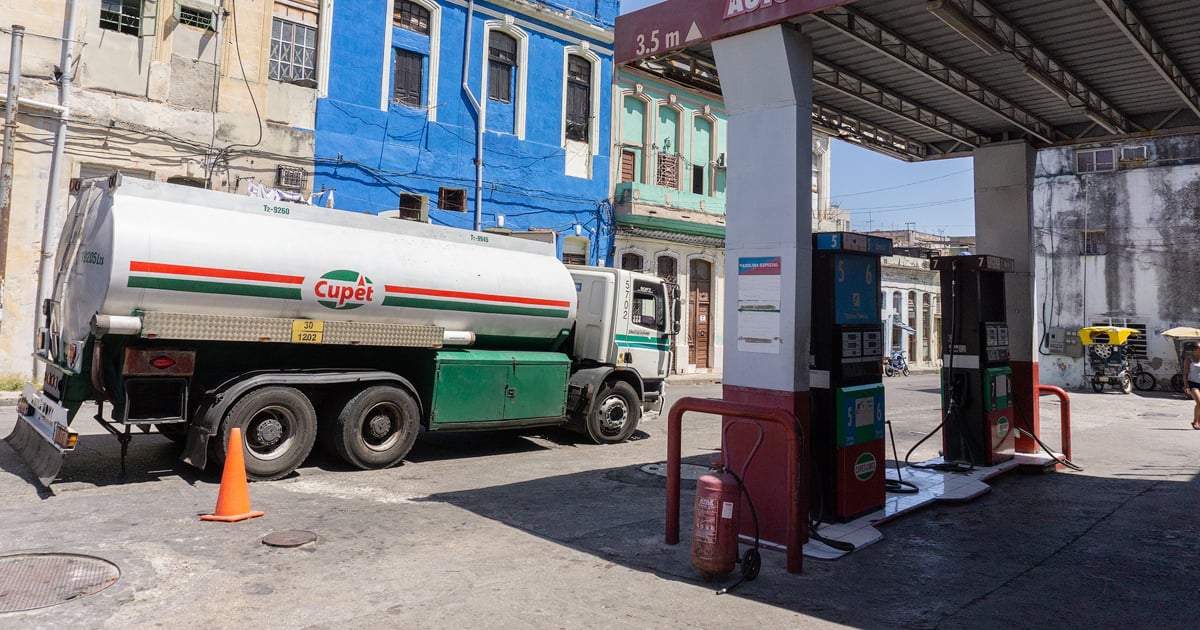
The new prices of combustible and the new electricity rate for high consumers They will come into force starting next Friday, March 1st.
This was announced at a joint press conference by the Minister of Finance and Prices, Vladimir Regueiro Ale, and the head of Energy and Mines, Vicente La O Levy, accompanied by the Vice Minister of Economy and Planning, Mildred Granadillo, and the Economic Vice President of CIMEX, Tania Danay Vives Alfonso.
As Granadillo recalled, on January 31 “we communicated the need to postpone the application of the new fuel rates due to the cybersecurity incident”.
Once "the affected computer systems" were restored, the government of Miguel Diaz-Canel go ahead with the controversial "package" of measures. According to Cubadebate, Granadillo warned that starting March 1 “retail fuel prices will be updated.”
For his part, Regueiro Ale ratified the official mantra that these measures “are aimed at rectify a group of distortions that are present in the economy.”
“We are talking about updating retail fuel prices. We are aware of the impact they have, since it is a product that cuts across the entire economy,” said the head of Finance and Prices.
His statements are in line with those expressed by Díaz-Canel at the end of December 2023, before the Economic Affairs Commission of the National Assembly of People's Power (ANPP).
After stating that Cuba sells "perhaps the cheapest fuel in the area, one of the cheapest in the world," the president said that the deputies and officials of the regime agreed to raise prices. "But when we raise the price of fuel, some services and some prices are going to go up."he clarified.
"The individual who has to buy fuel at higher prices will immediately look for justification to raise the price of transportation. And the agricultural producer who has to buy diesel at a higher price will want to raise the price of food. And yet, we all agree with the measure"he stressed.
Next Friday, that will be the scenario in Cuba. “To date, prices do not recognize the real costs the country incurs. They were outdated prices and generated subsidies from the State Budget,” explained Regueiro Ale.
“We know that this has consequences on the costs of production processes. The measure in itself has an inflationary impact, however, there is a group of decisions that mitigate its impact,” announced the Minister of Finance and Prices, without specifying which “group of decisions” will mitigate the impact of the “package”.
At the end of the first week of this year, Regueiro Ale announced that the price of gasoline in Cuba would increase by more than 500% starting February 1st.
As an example, he indicated that motor gasoline, B83, will be sold at a retail price of 0.95 dollars or 114 pesos. In this way, the regime equated fuel prices with the official exchange rate, approximately 120 pesos to one dollar.
Likewise, regular gasoline fuel (B90) will have a value of 1.10 dollars per liter or 132 Cuban pesos in service centers that sell in that currency. Special gasoline (B94) will be sold for 1.30 dollars or 156 CUP.
In the case of regular diesel, the most consumed, it will have a value of 1.10 dollars per liter and 132 Cuban pesos. For its part, super special gasoline (B100) will cost 1.65 dollars and the retail price in Cuban pesos will be 198 CUP.
For his part, De la O Levy insisted this Wednesday that "what we have proposed of increasing the electricity rate by 25% for those consumers who are above 500 kWh is very far from the average consumption of the country."
“This measure is not to raise money, nor does it eliminate subsidies,” said the head of Energy and Mines, ensuring that the measure seeks to encourage savings. “The price has to be a regulator of the market,” he stressed.
Besides, the decision to increase liquefied gas prices by 20% (225 Cuban pesos for a 20-pound balita of liquefied gas), announced at the beginning of January, will continue to be parked waiting for “the conditions to be created”.
Defended and attacked in equal parts between the Cuban government and civil society, Díaz-Canel's “package” of economic measures was seen forced to be postponed due to fear of a new social outbreak like that of July 11, 2021.
Analysts and independent press outlets pointed out that hunger, shortages, blackouts and the failure of essential public services such as health, left broad layers of the Cuban population without “relatives abroad” as the big losers of a supposedly aimed at correcting macroeconomic imbalances.
In figures, these would be millions of Cubans who see inequalities in the country deepening while the regime advances towards relentless state capitalism as part of its strategy to remain in power. A critical mass of Cubans who, if they come out to protest this situation, could complicate the calculations of the Palace astrologers.
What do you think?
SEE COMMENTS (6)Filed in: